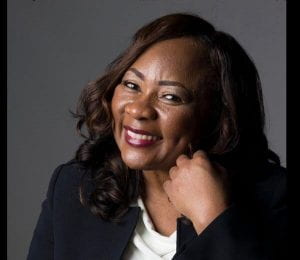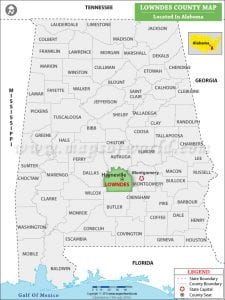[ad_1]
Activists come in many forms. An activist can be defined roughly as “one who advocates or practice activism : a person who uses or supports strong actions (such as public protests) in support of or opposition to one side of a controversial issue“. Activists may be seen as nuisances or annoyances to society at large, but their perseverance as changemakers drive society forward by bringing attention to the real issues that affect marginalized groups within our society. Alabama, a southern state with a rich and diverse history, has produced many an activist. There are a multitude of reasons for this, including Alabama’s long history of racial injustice and other issues which affect the working class. Alabamian activists include titans of American history such as Rosa Parks, famous civil rights activist, and Hellen Keller, author and disability rights activist. Despite Alabama’s current national reputation as a backwards and deeply conservative state, many Alabamian activists are fighting the deep inequality still present in our state. One such activist is Catherine Coleman Flowers, who came upon the defining issue of her advocacy “by accident”.

Crisis in Lowndes County
In the early 2000s, Flowers was working as an economic consultant in Lowndes County, Alabama. Lowndes County is a historically black county in rural Alabama, and was part of the route during the historic civil rights march between Selma and Montgomery in 1965. Visiting with some of her constituents over threats of eviction and arrest, Flowers was shocked to find “a stream of brown fluid flowing down the road…a pool of dark foul-smelling effervescent water that had collected around a pipe running from the church” that she was visiting. She quickly discovered that Lowndes County, deeply entrenched in generational poverty and harsh neglect from local officials, had a severe lack of public sanitation. Flowers was shocked to discover that the burden of sanitation needs fell on residents, and private septic tanks were often beyond the means of Lowndes County residents. In what she later came to call “America’s dirty secret”, Flowers was seeing that basic sanitation was not a guarantee for all citizens in the wealthiest nation in the world.
Flowers, who quickly reported the incident, saw little action from the “predominantly white and Republican-controlled local government”, who instead continued to threaten Black families in Lowndes County with eviction or even jail time. While shaken by the horrific sight, it set Flowers on a path of working towards environmental justice for BIPOC Americans. She states that her mission is to “expose the reality of life for the rural poor, and the racism and negligence that lies behind it”, saying “We see this as a third world problem, whereas in actuality it is right among us in a country that has allowed such inequality to exist since our founding as a nation”.
As Flowers continued her work, she came across more and more violations of human dignity. She spoke with the mother of an autistic child who was being threatened with jail time because she did not have a septic tank, though the cost of installation was more than ten times that of her monthly income. Other families she spoke with had no proper air conditioning or heating systems, and would huddle together in the winter time to keep warm. After one house call in which she came in close contact with an open septic pool filled with mosquitoes, Flowers developed a severe rash over her entire body, and she began to wonder if tropical diseases, which are considered extremely rare in the United States, may be affecting people in Lowndes County.

International Attention and Continued Advocacy
Flowers organized a scientific study to reveal the affects of improper sanitation of the health of residents within Lowndes County. Horrifying results awaited her. The study found that “34% of those surveyed tested positive for genetic traces of hookworm, a parasite that thrives amid poverty and that had been thought to have been eradicated from the US in the early 20th century”. The disease is thought of as normally associated with central and southern Africa and Asia, and is known to have lasting negative effects on physical and cognitive growth in children. Hookworm treatment, which normally consists of one dose of albendazole, has a high cost in the United States and is unattainable for many residents of Lowndes County. Flowers confirmed her dark theory with this study, and her advocacy for the end of discrimination against poor, Black Americans in rural counties led to a wake-up call for America. Through Flowers’ work and advocacy, the United Nations became involved in an investigation of extreme poverty that centered around Lowndes County, Alabama, as well as areas in California, West Virginia, and Puerto Rico. Despite criticisms from those in local government, Flowers continues to work towards eradicating the “deeply ingrained inequality” in our nation, authoring a book entitled Waste: One Woman’s Fight Against America’s Dirty Secret. Flowers has also founded an advocacy group – the Center for Rural Enterprise and Environmental Justice. Many prominent figures in U.S. politics, including former Vice President Al Gore and U.S. Senators Cory Booker and Bernie Sanders have taken Flowers up on the offer to tour Lowndes County, increasing awareness for the extreme poverty that still exists in our nation today.
Over twenty years into her fight, Flowers has still not seen the changes she has been fighting for across America. Figures from 2021 state that over 90% of Lowndes County residents still do not have access to proper sanitation. Flowers has also seen the issues of environmental justice extend beyond even Alabama or the southern United States, seeing issues in all American locales where poverty and public neglect continue to coexist. Despite this, Flowers continues to advocate for the rural poor across America. The beginning of the 2020’s decade has been marked with cautious optimism, as day one of the Biden administration saw several executive orders aimed at reversing the Trump administration’s anti-environmental legacy.
[ad_2]




